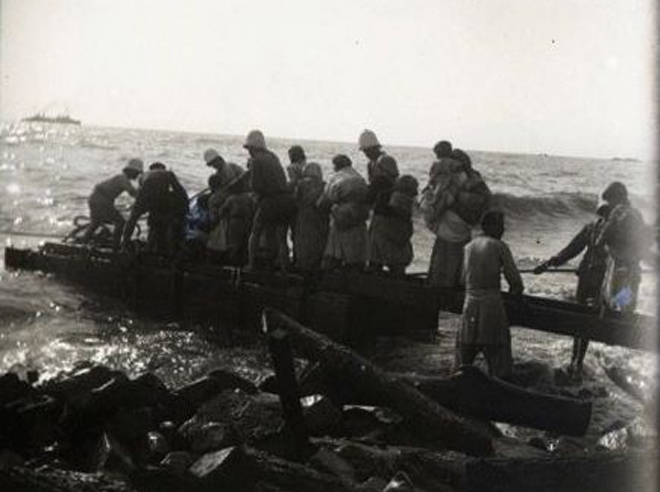Category: Documents
-

Exclusive photos depicting evacuation of Musa Dagh Armenians in 1915 discovered
(horizonweekly.com) Nearly 25 new photos depicting the evacuation of the participants of the Musa Dagh heroic battle through the French warships have been discovered by the efforts of the Armenian Genocide Museum-Institute, reports Armenpress. The Museum-Institute said the photos were taken by the French navy officer in Septetember 1915. The photos depict the process of…
-

Texas Becomes 46th U.S. State to Recognize Armenian Genocide
(ancawr.org) Austin, TX — The Texas House of Representatives passed House Resolution 191, titled “Recognizing the Armenian genocide,” today, thus making The Lone Star State the 46th state in the USA to officially classify and commemorate the 1915-1923 annihilation of Ottoman Turkey’s indigenous Christian Armenian community as genocide. “We are grateful to the Texas House…
-

Turkey Rights Group Disappointed in ECHR Decision, Urges Appeal
ISTANBUL, Turkey (A.W.)–The Human Rights Association (HRA) in Turkey issued a letter addressed to the Swiss Minister of Justice, expressing the organization’s disappointment with the decision of the European Court of Human Rights (ECHR) on Armenian Genocide denial.
-

La Fédération des Associations Kurdes de France condamne l’arrêt Perincek de la CEDH
(armenews.com) – Selon la Cour européenne des Droits de l’Homme (CEDH), le fait de nier le génocide arménien ne constitue pas un abus de droit au sens de l’article 17 de la Convention de sauvegarde des droits de l’homme. Dans un arrêt rendu le 17 décembre 2013, la CEDH considère que les propos négationnistes tenus…
-
Address of President Serzh Sargsyan to the Conference dedicated to the 90th Anniversary of Woodrow Wilson’s Arbitral Award
Dear Participants of the Conference, Ninety years ago on this day – November 22, 1920, the President of the United States Woodrow Wilson made an Arbitral Award regarding Armenia’s borders. It was probably one of the most momentous events for our nation in the 20th century which was called up to reestablish historic justice and…